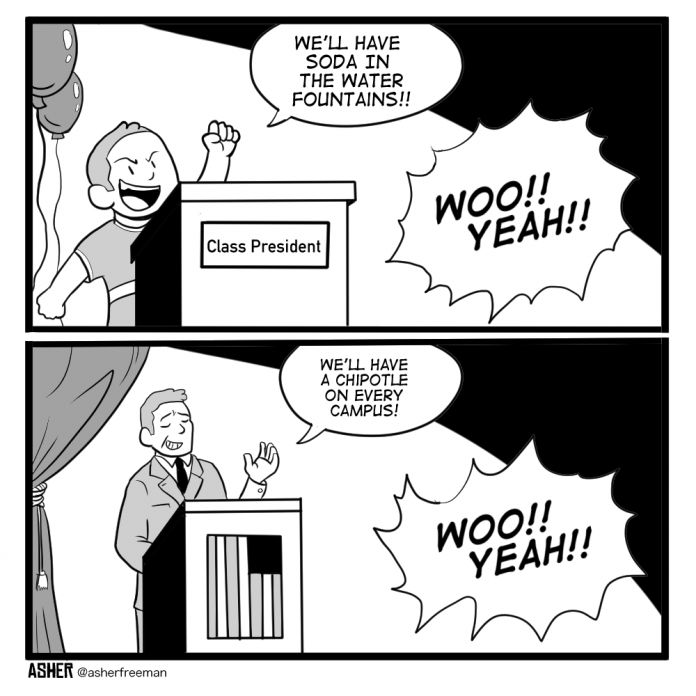Think about the last few times you had a conversation, discussion or argument centered on politics. Whether it was about presidential candidates, hot button issues or both, recall how that exchange ran its course.
Especially now, when politics seem more like absurdity theater than national discourse for problem solving, political discussions have become excessively polarized. Consequently, these conversations showcase a devastating epidemic of an ill-informed population that falls short of actually resolving to anything positive.
There should be no excuse for the newest generation of voters to be at a lack of information or evidence. How can it be that so many of us fear the responsibility of voting when we have an entire worldwide network of information resting in our pockets? Shame on all of us “millennials” for our political timidity in such a critical time for our country.
The information is out there to be found. Furthermore, it is gradually becoming more and more accessible to us. Again, there should be no excuse for us not to utilize the resources at our disposal.
However, be warned. With every growth in circulation comes an increasing possibility for poison in the well. Slowly but surely, it can pollute our conversations and the way we think. Just take a look at your social media feed whenever some political candidate or social figure ruffles some feathers. Take note of the length-to-evidence ratio in those posts.
How many times have you read through a Facebook rant and realized someone has no compelling evidence to warrant such a post? How many times have you seen a 140-character micro-argument on Twitter make absolutely no progress with the few words that were allotted in the tweet?
These mediums are useful for ease of connection with each other, but they have plagued this generation with two inherently dangerous habits of discourse: ranting with hardly any substance, or blurting out a quick, deceptive one-liner that crumbles when put to the test.
Some people are in office that should not be in office right now. Some laws have been passed that should not have been passed. In a government of the people, by the people, for the people, the blame for these blunders falls on our shoulders.
It falls on those who vote, speak or protest and refuse to honor the truth. It falls on those that stay quiet because of obliviousness, fear or apathy. There’s no middle ground between the two. Both have false premises and both lack a proper handling of the truth – a disastrous combination.
It’s easy to be offended by what someone said. It’s easy to not take action with the truth you possess or could easily discover. But what’s easy isn’t always best, right or smart. What’s easy is often weak. To feel empowered by being part of a cause but have no leg to stand on is weak. Those who are scared to accept the responsibility given are unacceptable. No more. Let us all be strong. Let us all stand firm with the truth and put action to the truth.
Stop being lazy and get informed. Be the one who seeks truth, not the one looking for another lunchtime debate victory to put under your belt. Stop burying others with your useless platitudes. Be the one who demands validity and extinguishes falsely assumed self-righteousness.
Truth is not good enough on its own. Action is not good enough on its own either. The two need to go hand-in-hand.






